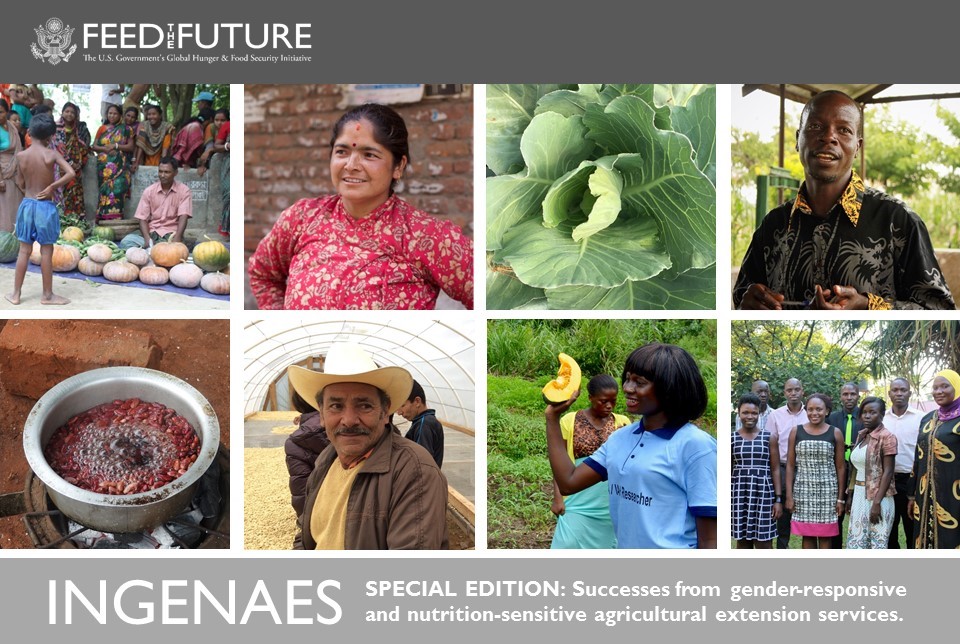| | | | After three years of INGENAES activities, we have seen exciting achievements in empowering and engaging women and men smallholder farmers. The many, diverse successes came out of building robust gender-responsive and nutrition-sensitive institutions, strengthening existing programs and projects to assess and respond to the needs of both male and female farmers, identifying proven mechanisms for providing improved EAS to female farmers, and promoting effective tools and approaches. Click below to read success stories centered around the hub of gender, nutrition, and agricultural development. |
|
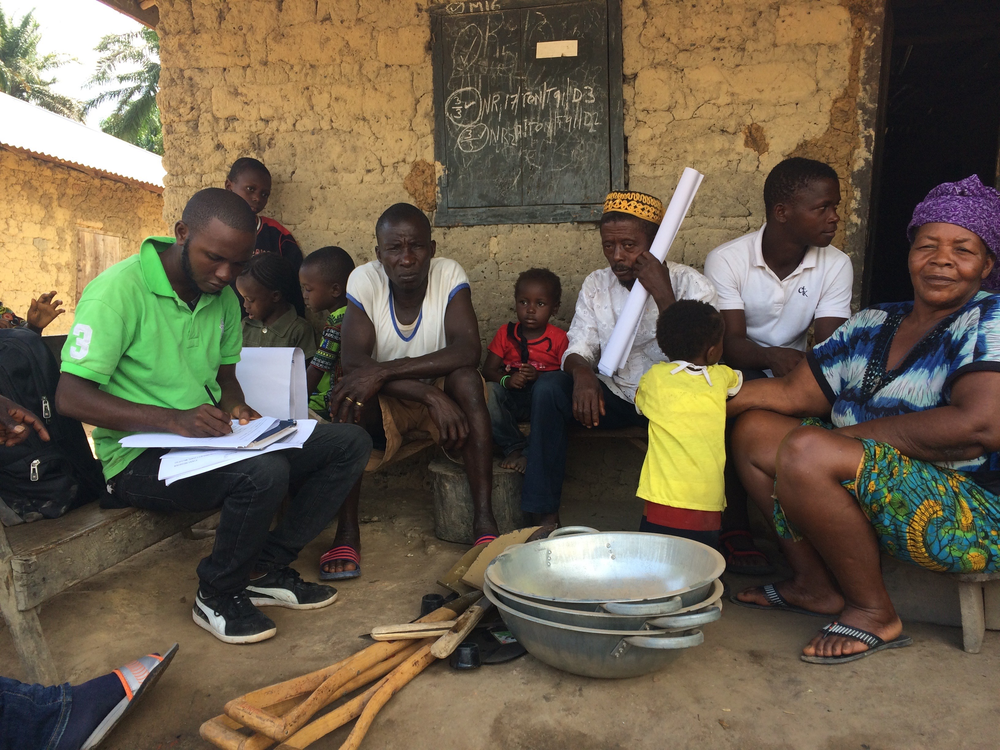 | | | SAP Extension Agent Sheka Sesay facilitates the establishment of a tool bank with farmers in Makrugba, Tonkolili. | | | |
Farmer Groups Value Using and Buying their Own Tools When the concept of fish farming as a business was introduced to farmers in rural areas of Tonokolili District, Sierra Leone by the USAID funded Feed the Future Scaling up Aquaculture Production (SAP) project, farmers asked for free tools to help them construct their fish ponds. This was not unexpected as agricultural development projects had provided free resources in the past, thus stunting farmers’ capacities to innovate and come up with solutions to solve the challenges they face using their own initiatives.
Unprecedented circumstances have hampered long-term development in Sierra Leone, most notably the Civil War that ended in 2002 and the Ebola disease endemic of 2014. These crises ravaged entire communities and stunted agricultural production across the country. Over half of the population of Sierra Leone is self-employed through agriculture, and in response to the War and Ebola disease epidemic, rural development efforts have been largely relief- and emergency aid-focused, providing free inputs and tools to farmers. Read more |
|
| | 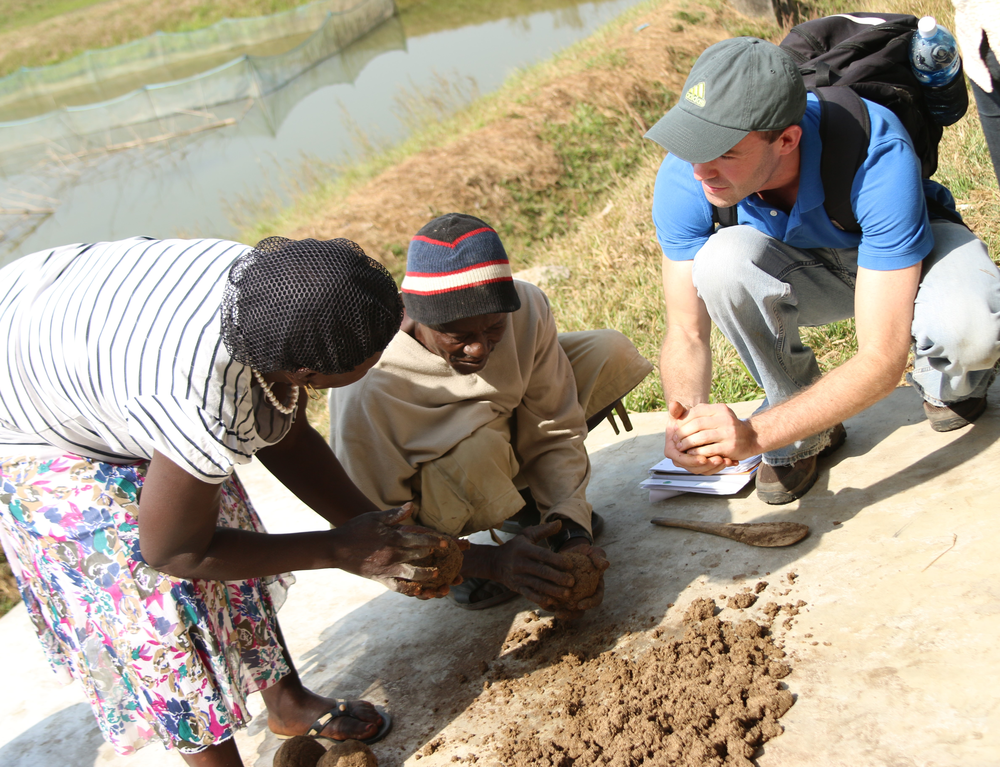 | | | Aunty Gladis demonstrates how to make fish feed in Aquaculture Fish Pond in Tonkollilli district. | | |
New Fish Feed Technology Changes Production in Sierra Leone In Sierra Leone women fish farmers collect the ingredients for fish feed, mold the mixture into balls, and toss them into ponds. This is food for tilapia, a fish integral to their livelihoods, and they are using a new fish feed formulation introduced by World Fish. The women are responsible for daily care of the fish, but they have limited control over how resources are used; easier access to quality fish feed could open economic opportunities. This technology is new to Sierra Leone and is geared at increasing agricultural productivity and incomes. However, we must look deeper to understand potential ripple effects on men’s and women’s lives. Do both men and women have access to technologies like these? How do women farmers benefit from them? Do innovative technologies allow both men and women to increase their incomes? As part of the Integrating Gender and Nutrition within Agricultural Extension Services (INGENAES) project, Cultural Practice, LLC (CP) developed a methodology to explore the relationship between agricultural technologies and gender issues as a means of understanding the potentially different ways that men and women benefit from innovations. Read more |
|
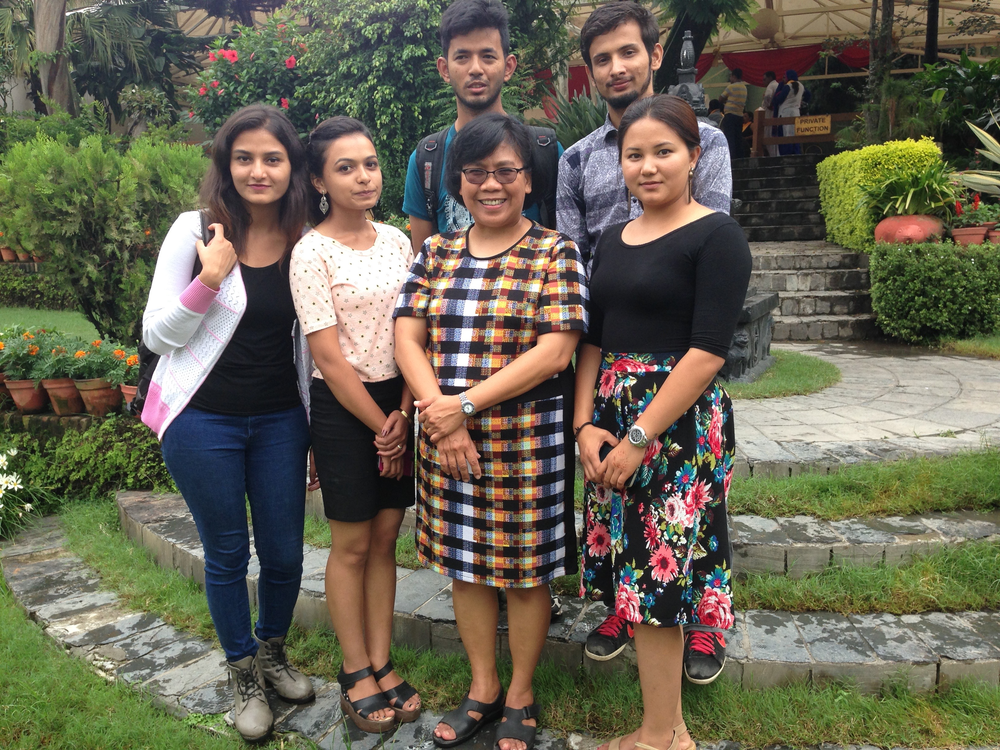 | | | YPARD members finish a communication skills workshop with Dr. Lulu Rodriguez. | | | |
Young Professionals in Nepal Rise Up as the Next Leaders in Agriculture “My name is Nikita Bhusal and I am from a small and beautiful Himalayan country, Nepal. I feel very proud to be one of the beneficiaries of INGENAES in Nepal.” Nikita currently works as the Communications Focal Point with Young Professionals for Agricultural Development (YPARD) in Nepal after completing her undergraduate studies in Food and Dairy Technology in 2016. After learning of the INGENAES project over a year ago, Nikita immediately decided to join the gender and nutrition strengthening activities in Nepal. Being a young professional with a focus on and passion for food and nutrition, Nikita jumped at the chance to build up her soft skills in communication, project management, and interpersonal relationships by engaging with INGENAES. In July 2016, Nikita attended her first workshop with INGENAES, on organizational capacity building for integrating gender and nutrition within agricultural extension services, facilitated by Dr. Muthusami Kumaran in Kathamandu, Nepal. This three-and-a-half day workshop was great exposure to learning about organizational structure, planning a project and program, and developing relationships with partners. Read more |
|
| | 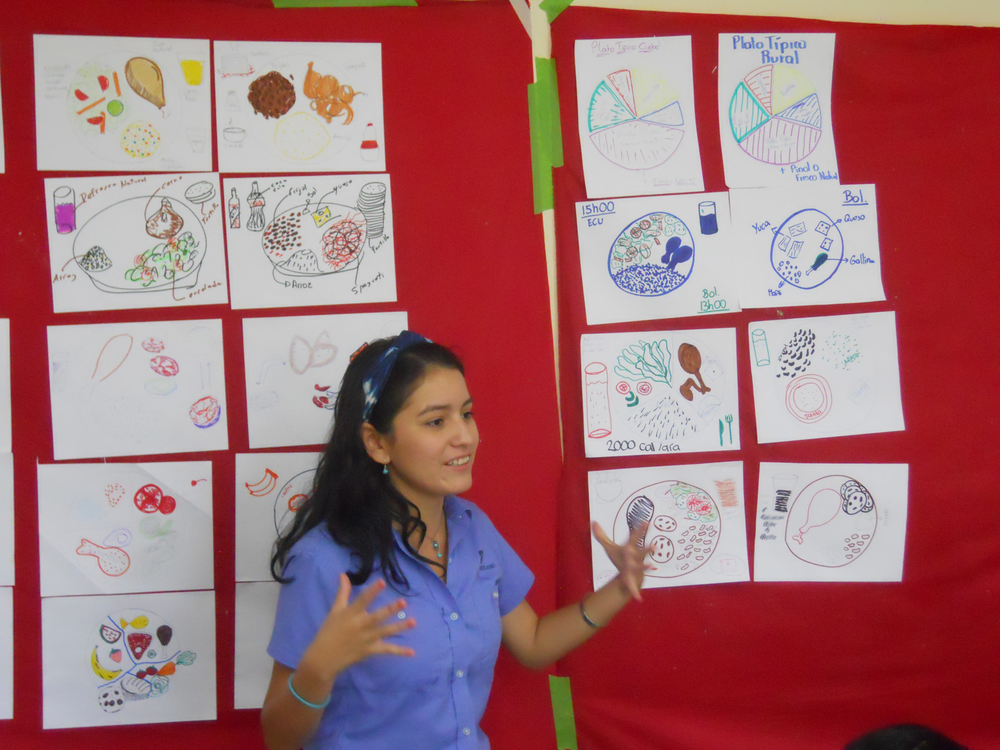 | | | A Zamorano student explains the difference between her diet (as a student) and that of a rural community during the "What Goes on the Plate?" activity. | | |
Tackling Machismo in Honduras through New Perspectives In many Latin American countries “machismo” customs and traditions convey a sense of supremacy of men over women, which leads to minimizing or downplaying the rights of women and girls. Machismo culture often limits the ability of women (and men) to participate in a more equitable social and family environment. Extension agents – the majority of whom in Honduras are male – experience the effects of machismo in their daily work, with fewer women attending agricultural trainings or able to make decisions regarding the use of income from agricultural sales. The INGENAES team and its partners are out to tackle this mindset to improve opportunities for both men and women. Creating an environment of trust and openness is vital when trying to motivate behavior change around a longstanding and potentially sensitive topic. This requires understanding the context as well as the needs of the learners; in this case, the learners are field-based extension workers positioned in indigenous communities. Read more |
|
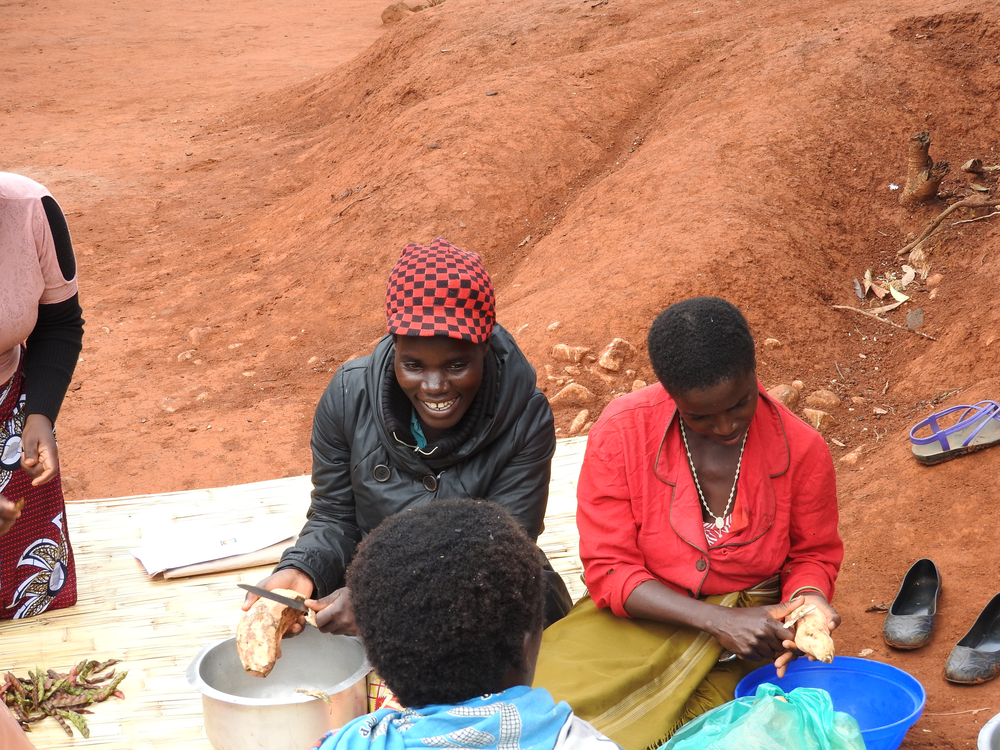 | | | Women cook sweet potatoes for a nutritious-cooking demonstration day. | | | |
Harmonizing Nutrition Messages for Zambian Households Naomi has three children under five. Now 20 years old, Naomi started her family while other girls her age were starting secondary school. While living with her children and their father in rural Zambia, Naomi participates in several nutrition, agriculture, and women’s empowerment projects that target young families like hers. One project recommends that she feed her children foods from four of seven food groups, while another stresses her children should eat foods from three of three food groups every day. Naomi wakes up before dawn, works all day long in the fields and around her home, and often cannot provide her family with enough maize and they often still go to bed hungry. Like most rural Zambians, foods other than maize are a rare luxury, and the inconsistent messages people get from projects make proper nutrition choices seem even less attainable. In the absence of national policy related to nutritionsensitive agriculture, INGENAES brought together organizations implementing nutrition-sensitive agriculture to address the potential confusion caused by variations in nutrition messaging. Read more |
|
| | 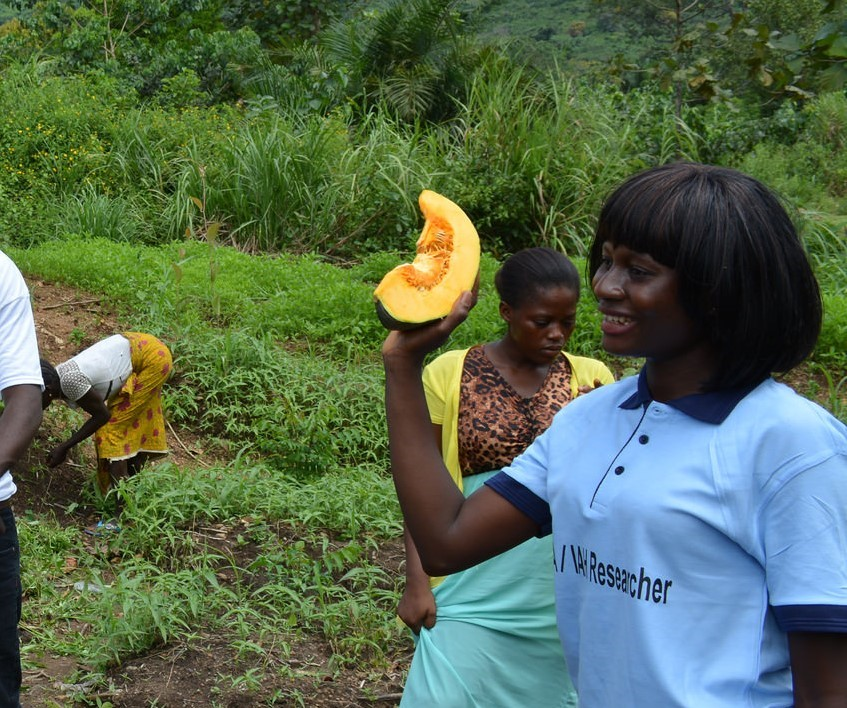 | | | Yeanoh teaches a group of students about vegetable production in Tonkolili district, Sierra Leone. | | |
Sierra Leonean Youth Tackle Gender Gaps in Agriculture As a young girl in Sierra Leone, Yeanoh Dumbuya wanted to know why so many people were malnourished. Her drive for answers led her to continue her studies to focus on nutrition at Njala University where she discovered more about how agricultural production can impact nutrition. She understands that “It is only when our farmers are ready to produce enough nutritious foods that people will be healthier in Sierra Leone.” At a young age Yeanoh also began to think about gender inequalities in agriculture, specifically when it comes to the perception that men dominate farming in Sierra Leone. “When people think that agriculture here is for men, they need to really think about how involved women are - maybe more than the men.” These gender gaps, Yeanoh says, negatively affect access to nutritious foods. Women often have less decision-making power concerning spending and food allocation within the household, which can lead to malnourishment. Read more |
|
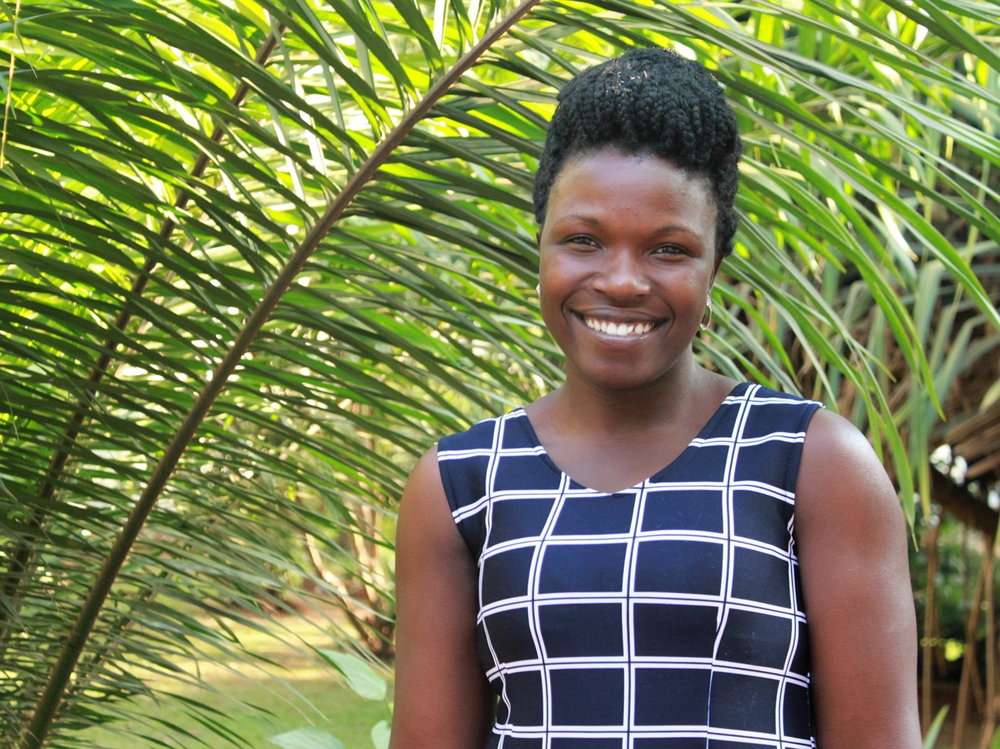 | | | Dorcus, one the fellows, is studying local staple food preparation with a group of Ugandan mothers. | | | |
Young Professionals on Board to Support Nutrition Security First, the women roast the soybeans over a low fire. Next, they blend them with roasted millet and sesame seeds, and finally cook the mixture into a fortifying meal. All of these women are mothers from two rural districts in Uganda working with Dorcus Alowo, a graduate student at Gulu University who studies food science and human nutrition. Once the porridge is ready to eat, Dorcus tests how the mothers react to the smell, taste, and texture of the dish. Dorcus is using traditional preparation and processing methods, as well as foods locally available in the districts to develop a nutrient-packed formula for porridge. If it becomes popular, it will help combat malnutrition in rural households. Though still in the preliminary stages of developing the porridge, she hopes this research will lead to improved nutrition and food security. Read more |
|
| | 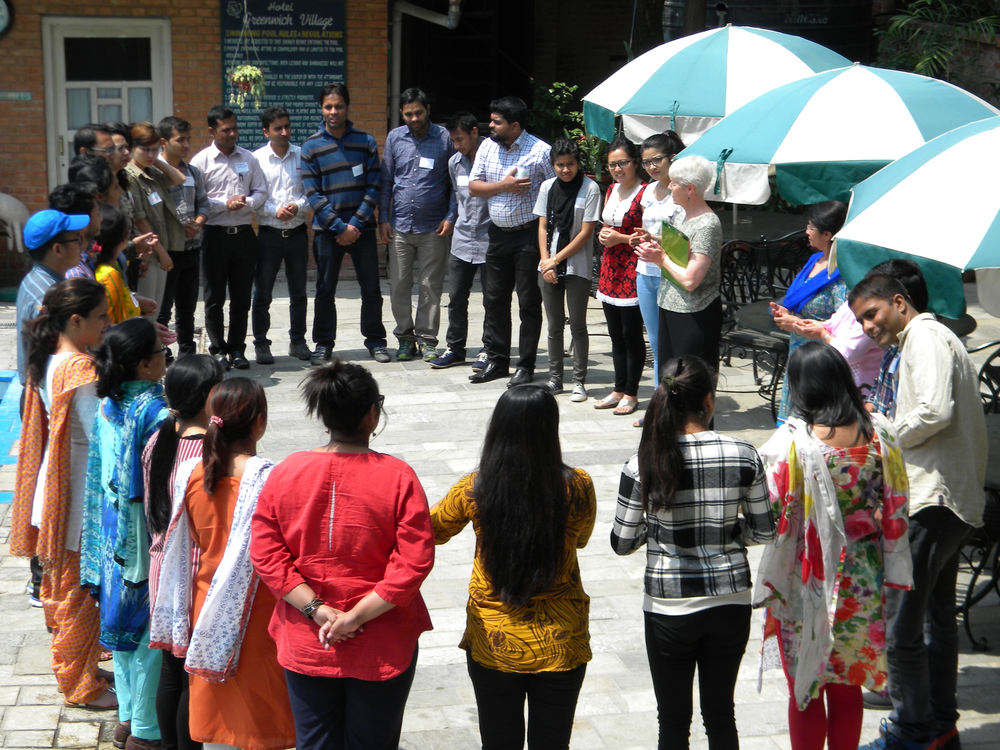 | | | Extenstionists come together for a daylong training on overcoming gender and nutrition challenges in extension. | | |
Extensionists Adapt INGENAES Gender and Nutrition Training to Fieldwork In the remote Tharu community that extensionist Rajendra Choudhary serves, women typically wake up at 4 am to begin their day. They will generally continue working nonstop until 10 pm seven days a week, while a typical man will work seasonally to produce cereal crops and take advantage of his free time by playing cards instead of helping with women’s tasks. As this characteristic workload balance attests, Rajendra confirms that gender inequity is a challenging issue for this rural community. Recently, Rajendra made an effort to facilitate greater understanding and open the dialogue about gender and nutrition challenges within the community by using training techniques he learned at an INGENAES workshop. Rajendra used four INGENAES activities from the workshop for agricultural extension-related professionals held in Kathmandu, Nepal in May 2016: (1) Who Does What? (2) Who Has Power and Control? (3) Who Gets What to Eat? (4) and Agricultural Value Chains. Read more |
|
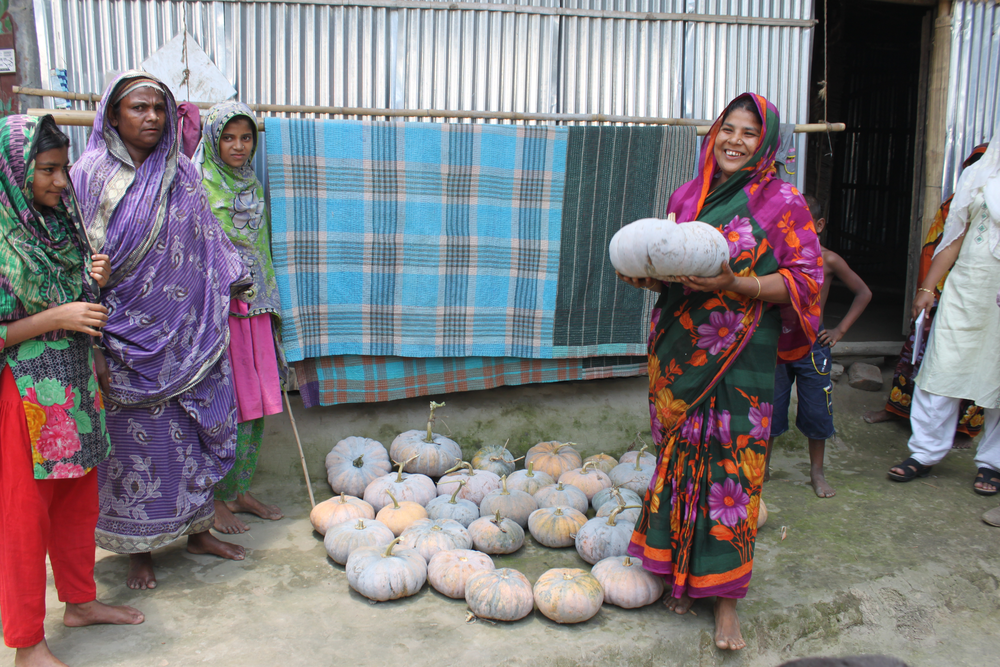 | | | A farmer shows off her pumpkin harvest in Dinajpur district, Bangladesh. | | | |
How Evaluation Builds Stronger Households in Rural Bangladesh Recently, the World Bank reported that agricultural growth and development have contributed to reducing poverty in Bangladesh from 48.9 percent in 2000 to 31.5 percent in 2010. However, high levels of malnutrition remain prevalent in children and women in rural Bangladesh despite considerable reductions in poverty. Many households are not consuming diverse, nutritious diets to sustain their health and the majority of rural households often face seasonal food deprivation without sufficient access to animal and plant-based protein and micronutrient-rich fruits and vegetables. Gender norms influence many dimensions of smallholder farmers’ livelihoods, particularly women’s decisionmaking power, control over household resources, and physical mobility. Cultural and gender norms influence the amount and distribution of nutritious foods among members of a household, i.e., between women and men, old and young, infants and older children, boys and girls. Read more |
|
| | 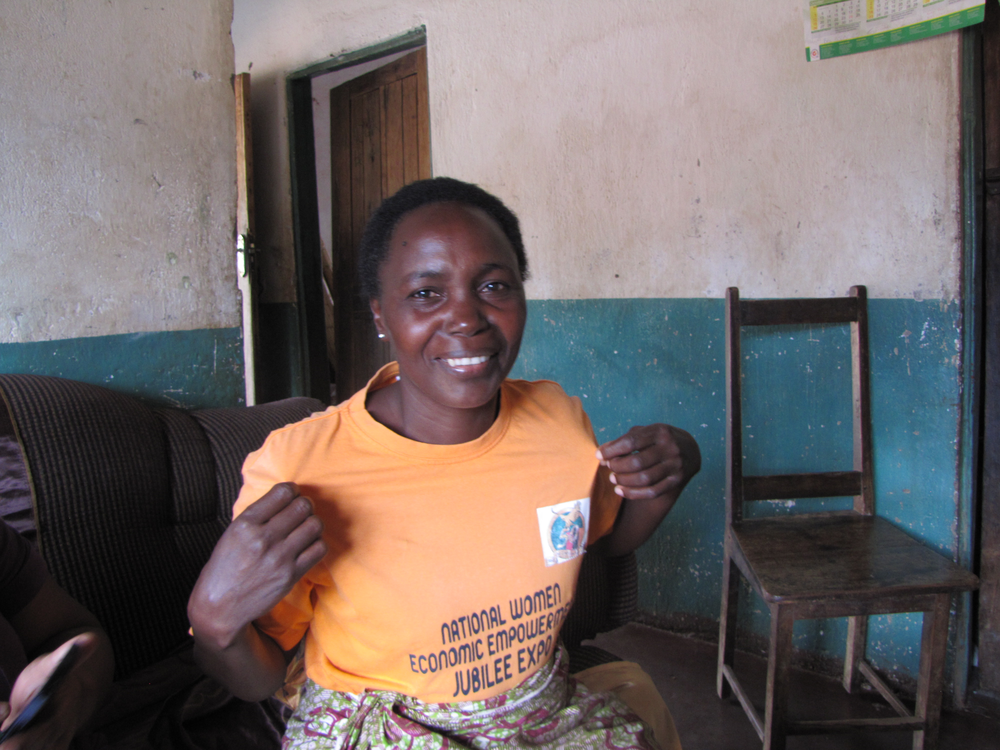 | | | Nelia is an input supply dealer who sells out of her own shop. | | |
Integrating Gender and Nutrition within Zambian National Agricultural Extension and Advisory Services Strategy The 6 million people working in Zambia’s agriculture sector gain key support to succeed in farming with access to a well-rounded extension system. Agriculture accounts for up to 85% of Zambia’s workforce and is the main source of livelihood for rural people, of which 77% are poor, so an encompassing, well-functioning extension system is necessary to improve their lives. The Zambian government recognizes the need to establish a pluralistic agricultural extension system that serves the needs of both men and women and improved nutrition for everyone. Most farmers are scattered over great distances across the rural landscape, and many of them are smallholder or subsistence farmers who would benefit from quality agricultural extension services that are responsive to their needs and help them attain food and nutrition security. Read more |
|
|
| | | |
|
